Colorado State University’s new Spur campus in Denver is now home to an innovative music program designed to uplift and educate disadvantaged students in Northern Colorado and is a perfect canvas for community musicians and future music educators.
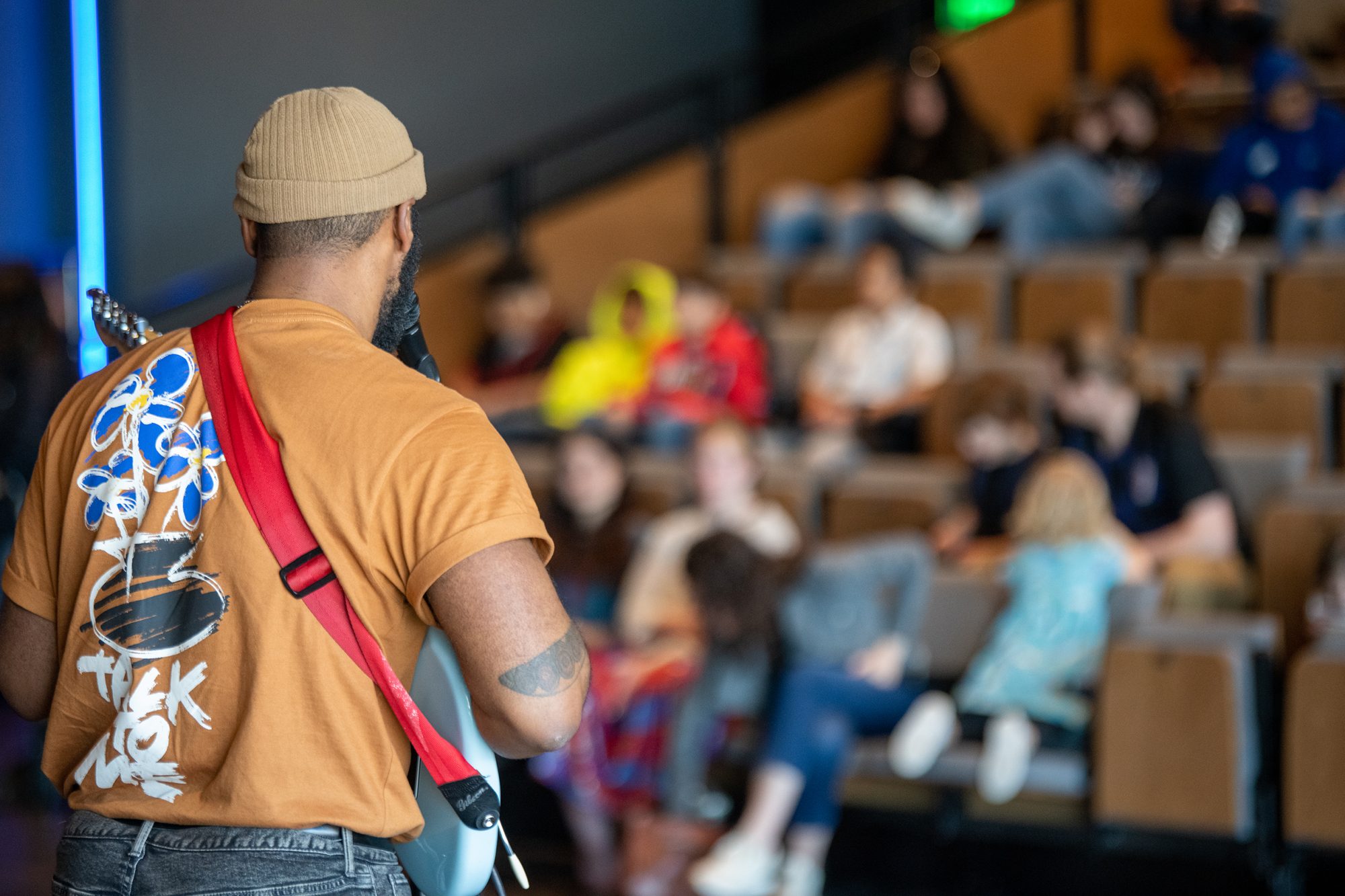
When the CSU Spur campus was a mere idea, the director of CSU’s School of Music, Theatre, and Dance, Dr. Dan Goble, wrote a proposal inspired by Take Note Colorado, a “statewide initiative to provide equitable access to musical instruments and instruction to every K 12 student in Colorado.” (takenote.org)
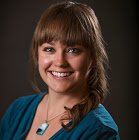
With additional input from music education professor, Dr. Erik Johnson, and music education alum, Katrina Hedrick (CSU’18, M.M.), who was handpicked to lead the endeavor, the new Spur MusicLab program is a hybrid of Take Note’s mission paired with the model of CSU’s Middle School Outreach Ensembles program.
Spur MusicLab is similar to the Middle School Outreach Ensembles (MSOE) in structure and intent; it reaches underserved youth and provides additional teaching experience for CSU music education students and guidance for high school students who might be interested in the field of education.
Facilitating curiosity
“Spur is this beautiful facility on a historically marginalized piece of land,” said Hedrick. “It’s the most polluted zip code in Colorado – kind of an industrial ranch wasteland. And there’s this beautiful facility there now that wants to welcome the community in and create community relationships.”
Spur’s buildings are three sustainable works of art named for the learning within. Vida focuses on human and animal health, Terra’s focus is agriculture and food production, and Hydro houses water research. The dual-purpose facilities also incorporate space to welcome the arts. The Hydro building is home to this budding music program, with multiple rooms for rehearsals, music therapy, and an auditorium, Confluence Theatre. Spur will host programs, field trips, and camps meant to spark curiosity in multiple fields and prompt dreams about potential vocations.
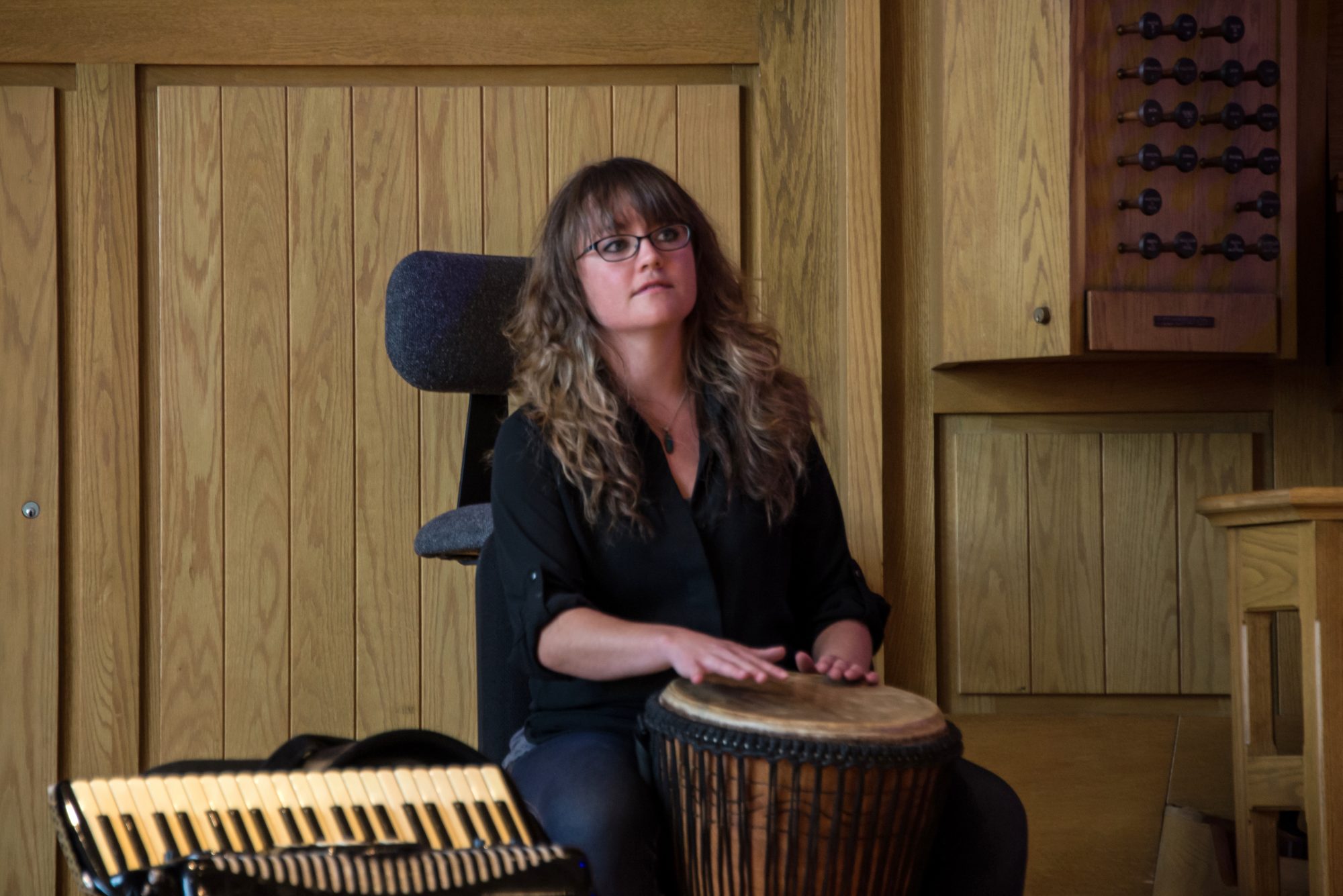
Philosophy of access
Hedrick’s personal and professional experiences informed her equity and inclusion-based teaching philosophy. Hedrick attended and taught high school on a reservation in Ignacio, Colorado. Growing up and working there gave her a unique perspective that she has carried with her throughout her career.
Hedrick’s goal is to expose students to a variety of musical genres. “As someone who comes from the bloodline of German brass bands – that’s not the only form,” Hedrick said. “When we only teach European forms of music in music education, not including other forms of music and cultural values is systemic racism. It’s inhibiting students' access to their roots.”
Hedrick presents multiple musical styles and approaches for engagement with music that allow students to develop their collage of artistry. “That’s the way I’ve designed my general music program at the secondary level, which is also what I apply to MusicLab.”
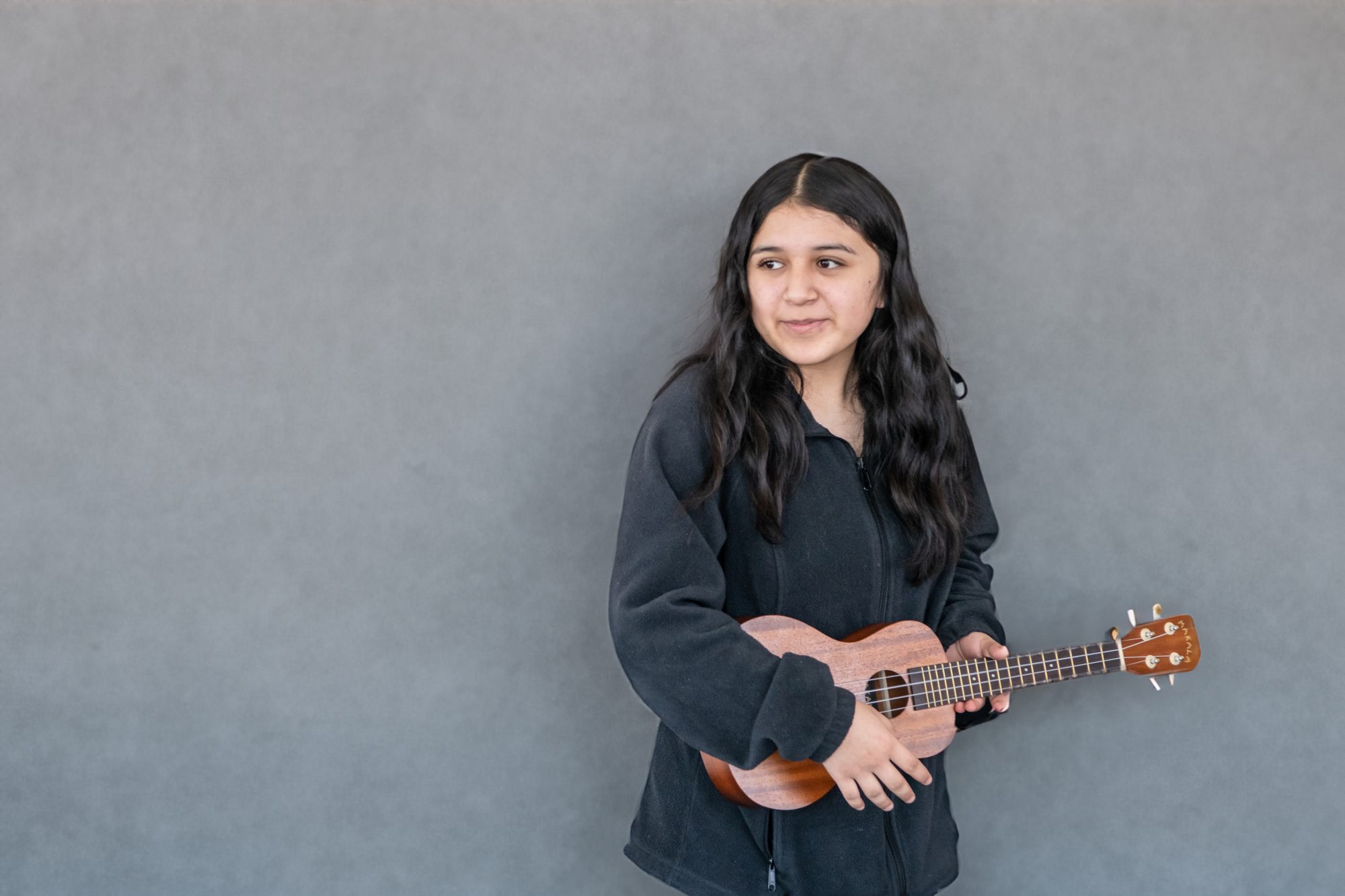
In her previous classroom at Bruce Randolph High School, Hedrick taught by ostinato to accommodate varying skill levels; lyrics and melodies arranged by the students are then layered onto the repeated phrases. Beginning students understand the method well enough to utilize it later in their solo or group recording projects.
“I’m a big Orff person because of access, and it’s a beautiful segue into both folk music and pop music, as well as common practice period compositions,” said Hedrick about Karl Orff’s teaching method that utilizes imitation and improvisation at the start. “The Orff volumes are fantastic choose-your-own-adventure pieces where you can have your composition and arrange it in your own way,” Hedrick said.
Hedrick’s program at Bruce Randolph bloomed during the five years she taught there because of its accessibility and elemental approach. A platform to create and learn resulted in motivated students who were inspired to make music, and self-directed learning produced musicians with phenomenal skill levels.
“They play this extremely challenging [traditional Mexican] music called corridos, which is gorgeous. I could not have taught them any of that. I just gave them space to learn,” Hedrick said.
Transformative teaching
Spur MusicLab launched in Feb. 2023 with a handful of students. Since then, the program has drawn in families seeking to explore their musical creativity. Hedrick also brought her most talented students from Bruce Randolph to help with the teaching, another practice taken from MSOE.
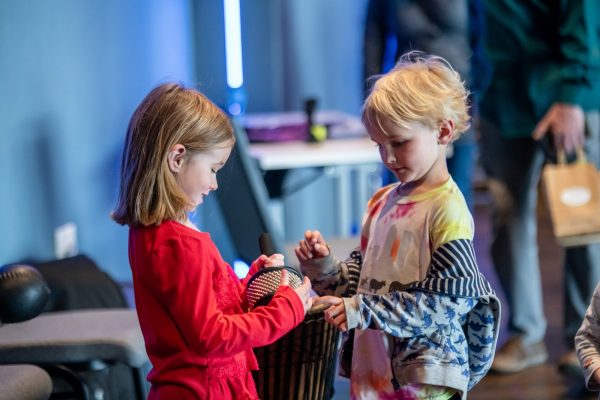
MusicLab includes a ‘Littles Class’ for eight-year-olds and under, a class for older students, and even adults and parents. The younger class is based on Kodály and Orff's methods, which incorporate singing, instruments, and movement, while classes for older students are elemental, offering percussion, strings, and keyboards.
A beautiful component of MusicLab is the transformative teaching philosophy that everyone can make music. People watching a classical music performance may feel that making music is unattainable because of costly lessons and hours of practice; however, the world is filled with aural and visual music-making, and some of the most powerful classical pieces are based on folk songs that have survived through oral tradition.
The next generation of music educators
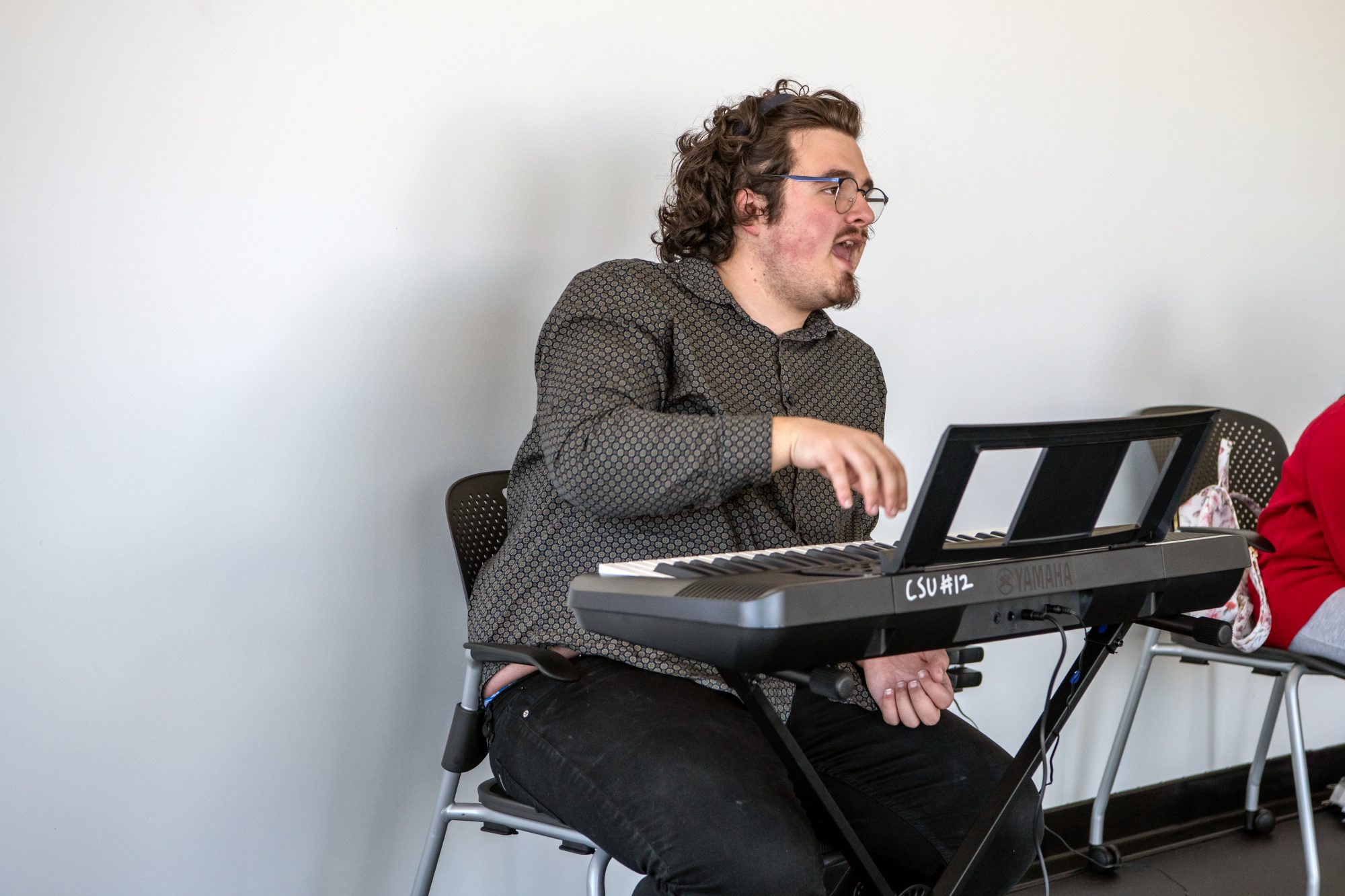
Paul Beyer (’23) and five other CSU music education students were teachers in training at Spur MusicLab. “Katrina has done a lot of our training on the access side of things,” Beyer said. “We’ve learned about different types of music literacy, how to teach those types of literacy, and basically how to make what we’re doing accessible to anyone who walks in. Parents are getting involved, kids of all ages are getting involved.”
At MusicLab, the National Association for Music Education standards, which “cultivate a student’s ability to carry out the three artistic processes of creating, performing, and responding” are top of mind for Hedrick. (nafme.org) “Students who are responding and connecting to music, which is a social and emotional connection, are ambassadors. Everyone can be an ambassador because music is infinite and a reflection of society,” Hedrick said. “We’re looking at cultivating musicologists, performers, and people producing music electronically or events. I look at that as the artistic cycle.”
Hedrick wants students to ask themselves, “Can you connect with music, can you engage in it through practice, and can you create something that’s meaningful to you as some expression to yourself, however that looks?” Her goal as a teacher is to make lifelong learners who continue to practice music for the rest of their lives.
“I thought I understood what access was, and Katrina, in a very positive way, taught me that I was wrong,” said Beyer. “I think I understand how to make things accessible a lot more now, and access is basically the number one priority of my personal teaching philosophy, so it’s probably a good thing that I know a little bit more about that.”
More information about CSU Spur MusicLab is available on our website. Please email SMTD@colostate.edu to be added to our MusicLab mailing list.
